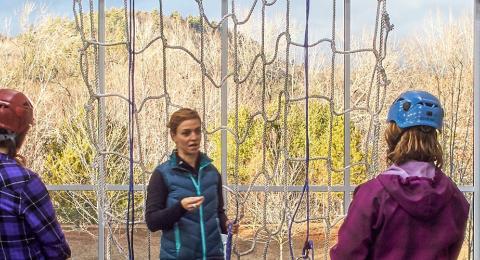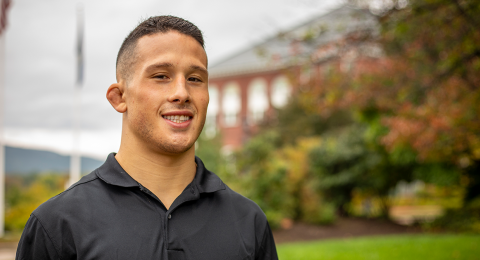Health
Plymouth State’s health-related programs range from minors and certificates, bachelor’s and master’s degree programs, and the fully accredited doctoral program in physical therapy. Students benefit from state-of-the-art facilities and a healthy, outdoor oriented culture that takes full advantage of the surrounding landscape.
Year after year, the University’s health programs have benefited from significant upgrades that expand options for students and are enriching the learning experience.
In 2023, the University secured $2.1 million in federal funding to expand the nursing program’s physical learning space, including its clinical simulation lab. PSU’s Nursing Workforce Expansion project ensures that the University is well-equipped to educate the next generation of nurses.
In 2022, Plymouth State’s new Morgridge Strength and Performance Lab opened. The $4 million, roughly 16,000-square-foot facility, a standout component of the University’s Human Performance Center, surpasses those found at many Division I schools and is a teaching lab for a wide range of health and science academic programs.
In 2021, the University’s $3 million turf field was unveiled, enabling year-round outdoor activities. Academic programs frequently utilize the field for classes, clinics, and public-facing events.
Plymouth State’s motto, Ut Prosim (That I may serve), is exemplified by its health programs. For example, the B.S. in public health, one of the nation’s few standalone undergraduate programs of its kind, provides students with opportunities to do the type of work more commonly found in professional public health placements, and athletic training, nursing, and physical therapy students frequently contribute to real-world community initiatives.
Programs of Study
Undergraduate
Graduate
RELATED PROGRAMS



